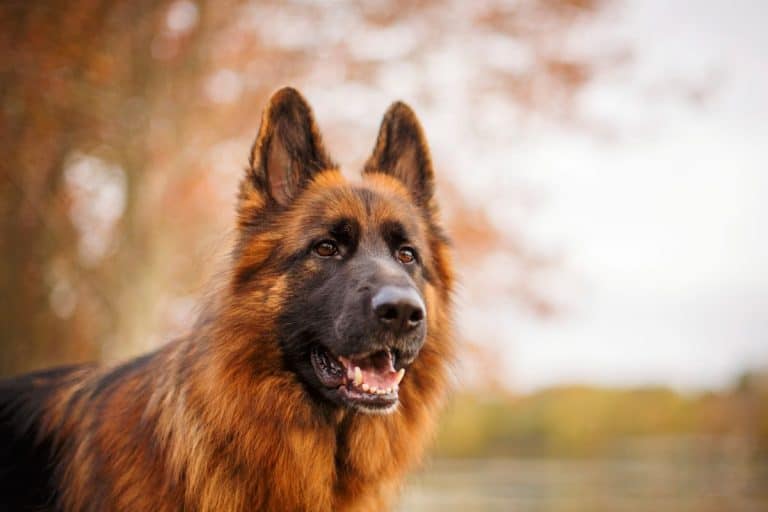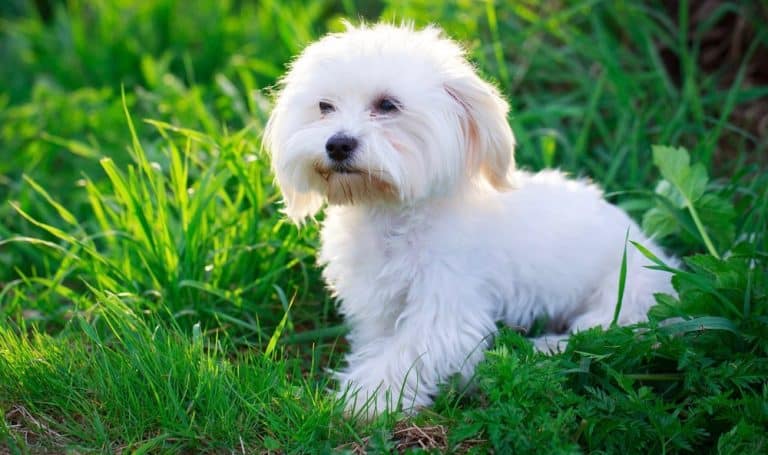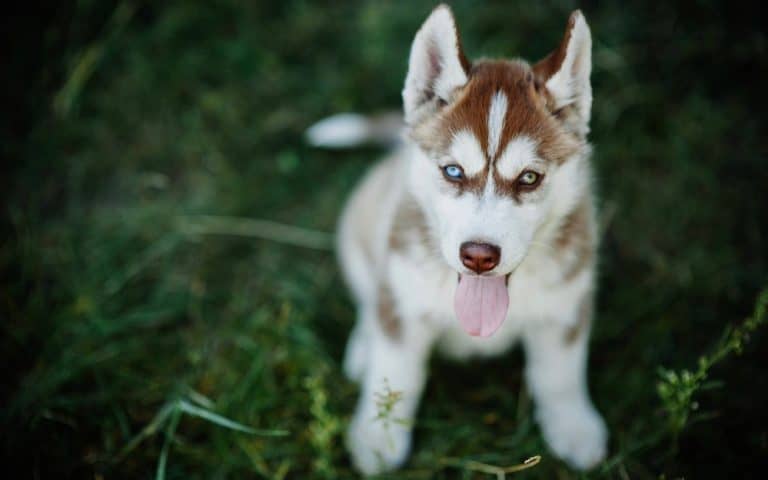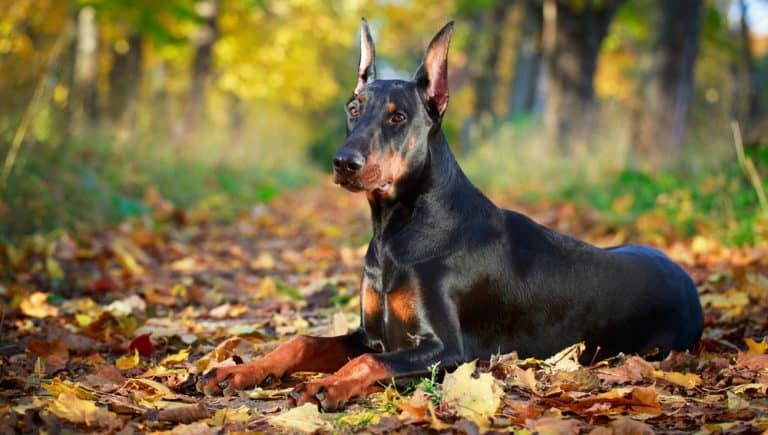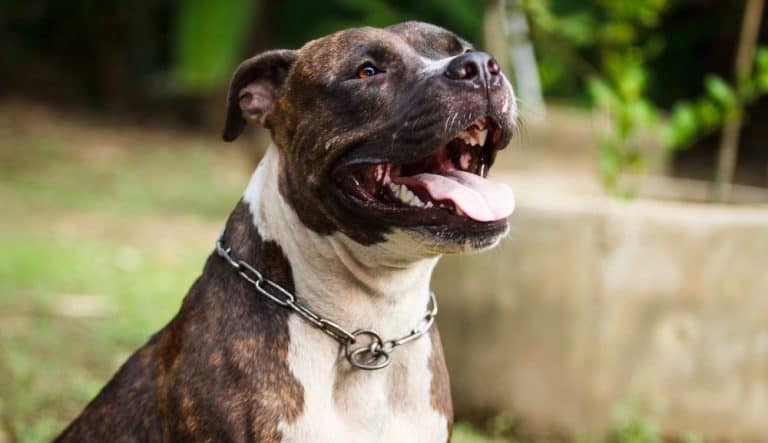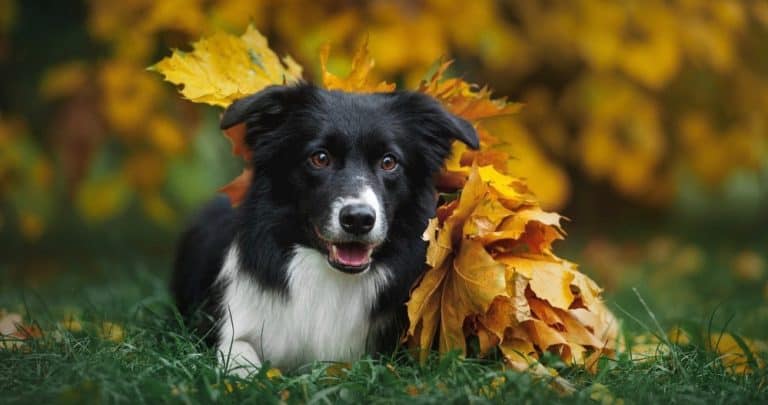Do English Bulldogs Shed – English Bulldog Shedding
Bulldogs possess an unmistakable appearance among dog breeds. Their furrowed brows, loose forehead skin, small ears, and distinctive rolling gait, give them a proud and tough appearance and makes them stand out.
The coat of the English Bulldog comes in an array of colors that are standard and non-standard. The standard colors are the colors that are approved by the Kennel clubs. Any English Bulldog colors that are not listed in the breed standard by the Kennel Clubs are not typically recognized.
English Bulldogs can develop to weigh up to 50 pounds, but they are known to be playful and fond of their owners. Despite their size, they have no problem curling up in your lap or at least attempting to.
Many people mistake their relaxed ways for sluggishness, but this is not true. Bulldogs love active playtime and taking brisk walks because they need a fair amount of regular exercise.
They should also have a nutritiously precise diet, to remain trim. As dog parents of English bulldogs, you may find yourself asking the question. ‘Do English bulldogs shed?’ This article will provide a detailed answer to the question.
Do English Bulldogs Shed A Lot?
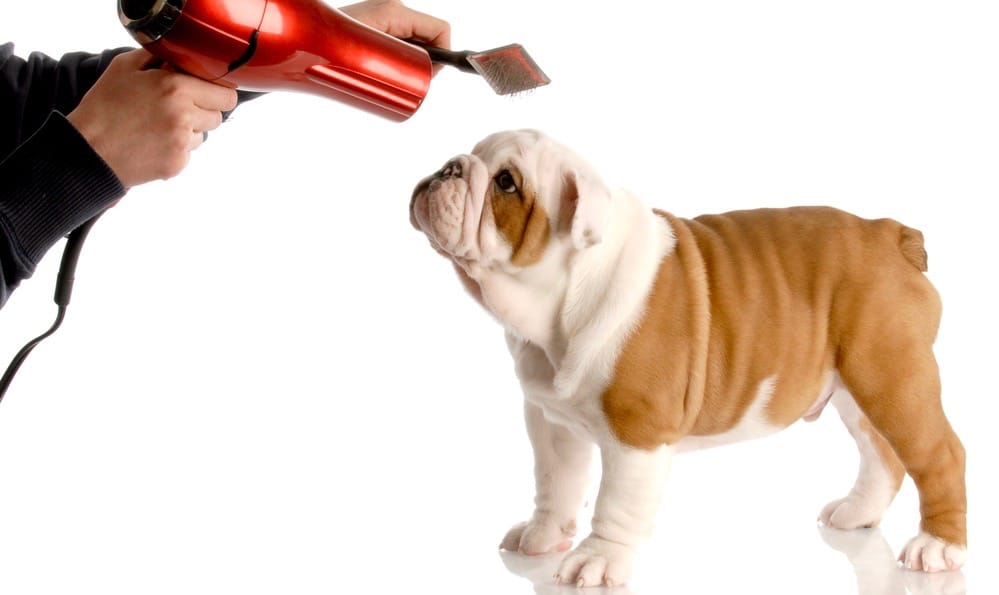
Many new dog owners would like to know the answer to this question. And the short answer is yes! English Bulldogs do in fact shed.
But in comparison to other breeds of dogs, they don’t shed all that much, and when they do, the fur is much less noticeable on the furniture floor or other areas.
Many people tend to see Bulldog fur on their clothing which rubs off on them during playful or loving interactions with their English Bulldog. This is especially the case when you are wearing darker clothing and have your English bulldog on your lap or the couch next to you.
If your English bulldog has a lighter shade coat, then the fur would probably be even more noticeable. Generally, English bulldogs are known to be “average” shedders.
Shedding is a natural part of life for your English Bulldog. Just like humans dogs shed old fur to give way for new fur as they go through their lives.
English bulldogs have a short and coarse coat of fur, which tends to have brindle patterns. Because their fur is short, people assume that bulldogs don’t shed.
English Bulldog Shedding Frequency
All dogs shed fur and this happens throughout the year. As a dog parent, you may realize that English bulldog shedding happens a bit more during the late winter months or the early spring months.
This sudden change relates to the weather as they are shedding their winter coat. English bulldogs tend to shed lightly during the other months of the year.
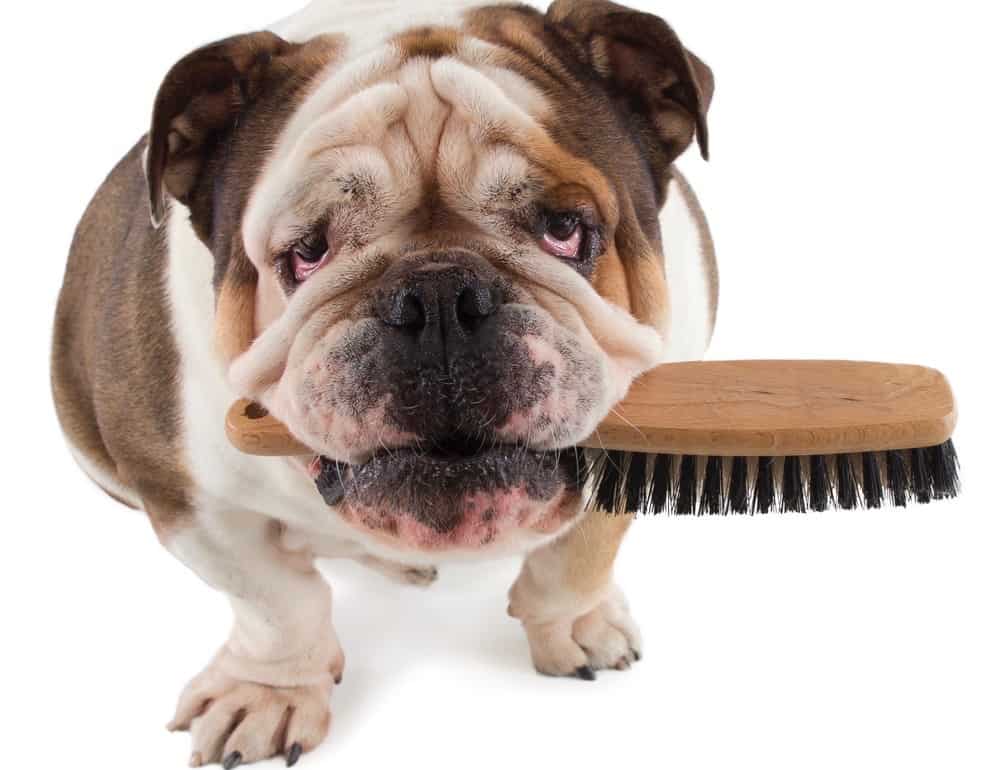
Some owners may notice that this increased shedding may last for a month or two, but there should be no cause for alarm. Although you should always be monitoring your English bulldog for his shedding patterns.
It is always a good practice to check with your veterinarian if you are not sure about an issue. If your English bulldog has been shedding excessively for over 2 months and then there may be a more serious issue at hand. In that case, you should visit your veterinarian as soon as possible.
In addition, you need to understand that some dogs may shed more than others may, and this is due to their genetic makeup.
The Main English Bulldogs Shedding Causes
Shedding may occur gradually or excessively depending on your English bulldog’s health, age, or the weather. To be certain of what is happening to your bulldog, it is always best to check with your veterinarian.
In this way, you will gain vital information about what is happening to your dog at any given time. In some cases, your English Bulldog may require medication.
There are several issues related to health that affects the shedding of your English bulldog. These include:
Fungal or Bacterial infections – Fungal and bacterial infections can increase the shedding of a bulldog’s skin.
Parasites – There are a variety of parasites that may cause your bully to shed. Some of these parasites are mites, lice, fleas, etc. these parasites also cause other diseases, so you should pay close attention.
Medication – Even though a particular medicine may help with your dog’s health issue, it may also cause other side effects. Some dog medications can result in the shedding of his hair. You should only take these medications after the veterinarian’s recommendation.
Improper nutrition – If you aren’t giving your bully well-balanced nutrition, this can lead to excessive shedding. Improper nutrition comes in the form of underfeeding, overfeeding, or reduced food quality. This may also cause other diseases to your bully.
Ensure that you are purchasing dog food that is specially made for English bulldogs as they tend to suffer from allergies that most bulldogs do not have.
Cancer prone – Check your Vet to make sure that your dog has not developed cancer. If your English Bulldog has cancer, you should handle it with recommended medication to curb cancer.
How To Manage Your English Bulldog Shedding
Brushing
Many dog experts suggest that you should brush your English bulldog as often as once per day. Dogs typically enjoy being groomed especially if you reward them with a treat when you are finished.
If you start this practice at a young age, it will be easier as they grow older. The objective of brushing them is to remove loose hair and prevent shedding in unwanted areas.
To do this, you can use a fine brush with compact bristles. The brush should also be soft, and you can check this by running it along your arm.
Although English Bulldogs have short fur that does not get entangled, you still need to maintain frequent brushing. By brushing every day you will ensure that your English bulldog has a healthy coat and skin with less shedding.
Bathing & Shampoo
Your English bulldog means regular baths with a mild shampoo for healthy coats of fur. You should bathe your English bulldog regularly, but you should not overdo it.
A reasonable schedule would be at least once per week or about once per month. This depends on your preference or your dog’s needs.
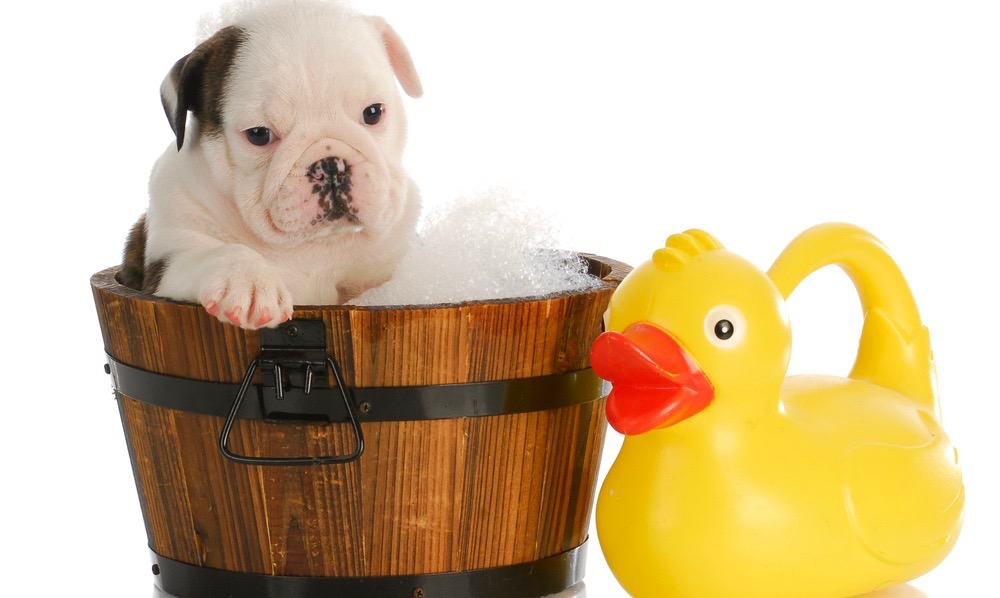
However, if your dog tends to roll around in the dirt a lot, then you should hose him down and ensure that he is clean. This is so that he will have a healthy coat and skin.
It is especially important for Bulldogs because they tend to have sensitive skin. You should also avoid strong shampoos because your dog may have an adverse reaction to them.
Diet
One of the most important things you can do to prevent excessive shedding in your English Bulldog is to monitor the ingredients that are in his meals.
This is because English Bulldogs may have food allergies or sensitivities that result in too much shedding, skin infections, and itching.
You should source high-quality dog foods that contain a sufficient amount of protein and essential vitamins and minerals. Additionally, these foods should contain no artificial colors, sweeteners, and Grains.
In addition, you should see a vet’s so that he or she can recommend the best course of action for dealing with your dog’s allergies.
Supplements
A lack of omega-3 fatty acids may cause your English Bulldog to shed. Bulldogs require a diet that is high in omega-3 fatty acids.
If you feed your puppy a lot of meat then you should consider giving them fish, for its high content of omega-3 fatty acids. You may also try to incorporate flax seeds into their diet.
Supplements are also a great way to provide this essential nutrient to your dog’s diet. You will notice that your dog is shedding less and has healthier fur because of this.
English Bulldog Coats
A Bulldogs coat fur is usually coarse and, with brindle patterns. Because their fur is so short, people think they don’t shed. They actually do. It is just less than other dogs and more difficult to notice with the naked eye.
Some dogs have a double coat, which is a second-layer coat of hair that gives an additional layer of insulation and shelter from environmental and outside elements like water and cold. Usually found in dog breeds that are expected to survive within the elements.
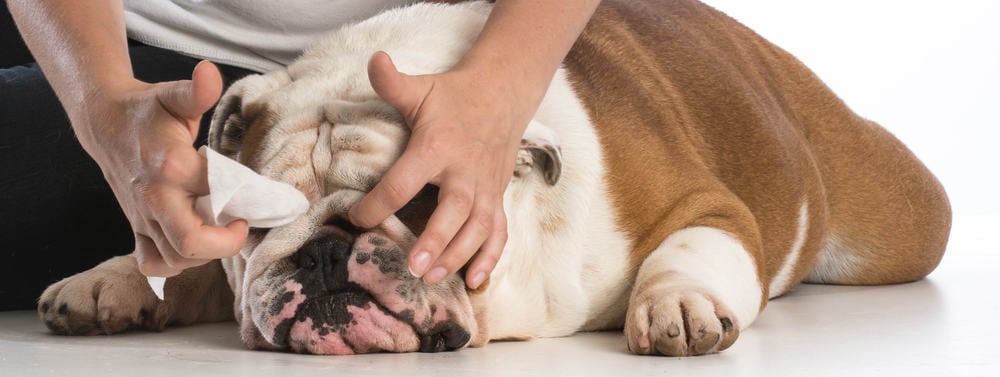
English Bulldogs have less shedding than other dogs do because they do not have a double coat of hair. This is great news for English Bulldog owners because it also means less grooming and cleaning around the house.
What Is The Difference Between Shedding And Fur Loss?
All dogs shed their fur at varying degrees. This is a natural occurrence and no cause for concern. A dog that sheds is a healthy dog as he is simply renewing his coat as time goes by.
It should be expected that your dog will shed his hair throughout the year. But they usually shed excessively when they are getting rid of their winter coats. This is perfectly normal.
On the other hand, fur loss is a signal that your English bulldog has an underlying condition that needs to be addressed immediately.
This may very well be a sign of ill health and usually occurs out of nowhere and in large amounts. The underlying conditions may be because of a hormonal imbalance, fungal infections, improper diet, or reaction to a harmful environment.
Do English Bulldogs Smell
All dogs smell and many of them have a particularly bad order. English Bulldogs usually create a bad smell because of their sweaty footpads.
To mitigate this you need to trim the fur between the footpads using a pet hair clipper so that the scent will be diminished.
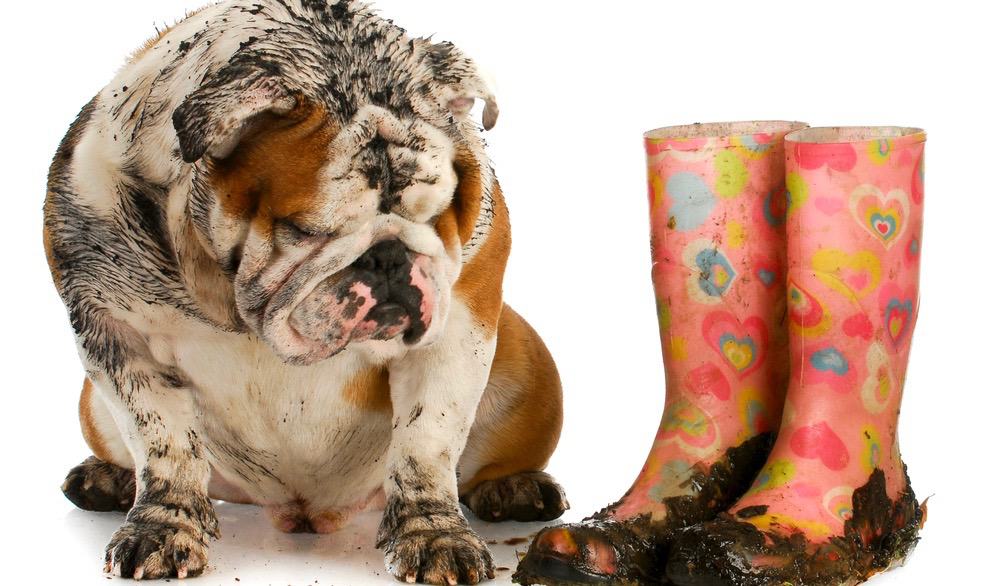
Implement this method in addition to regular baths with mild shampoos so that the smell will be tolerable. This is especially important if you live in a small apartment or house as the scent will be persistent throughout this enclosed space.
Do Spayed & Neutered English Bulldogs Shed Less
When your dog is shedding too much, this may be because they have recently been spayed or neutered. Shedding usually happens because of the hormonal imbalances associated with those procedures.
Many dog breeds shed excessive fur after giving birth or when they have just been spayed or neutered.
When female dogs are pregnant or nursing, they have also been known to shed excessive amounts of hair. When this occurs you should consider providing greater amounts of omega-3 fatty acid to their diet.
Additionally, you should also pay a visit to your veterinarian to ensure that his health is optimal.
Do English Bulldogs Puppies Shed More Than Adult Dogs
With an English bulldog’s smooth, short and fine coat, clean-up becomes relatively easy especially in comparison to other dogs. Puppies have been known to shed more fur than their adult counterparts because they are still growing.
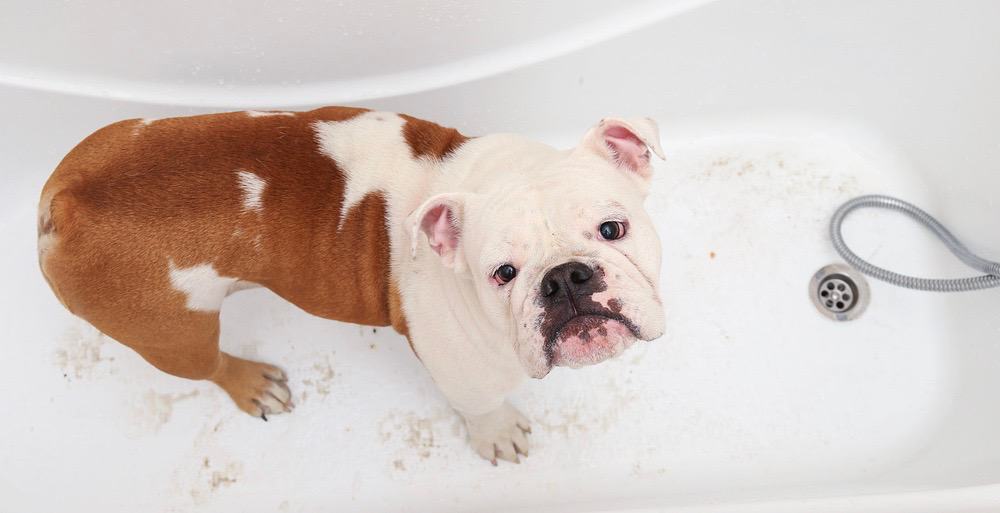
This usually levels out once they reach adulthood. As puppies, this is the best time to implement a brushing and grooming schedule, so that your English Bulldog will become accustomed.
A healthy and nutritious diet is important at any age as this also affects the shedding of your dog.
Are English Bulldogs Hypoallergenic
Many people want a truly hypoallergenic dog but one such dog does not exist. It is true however, that’s some dog breeds are easier to deal with than others.
There is an erroneous assumption English bulldogs are low allergen-producing breeds. Nothing could be further from the truth, because English Bulldogs actually produce large amounts of allergens especially in comparison to other dog breeds.
This misconception most likely came about because people believe that dog breeds with shorter fur, are less likely to trigger allergies. But hair or dog fur is only part of what triggers a person’s allergies.
Allergies are actually triggered by a dog’s saliva, urine, and dander in addition to his fur.
English Bulldog Shedding FAQs
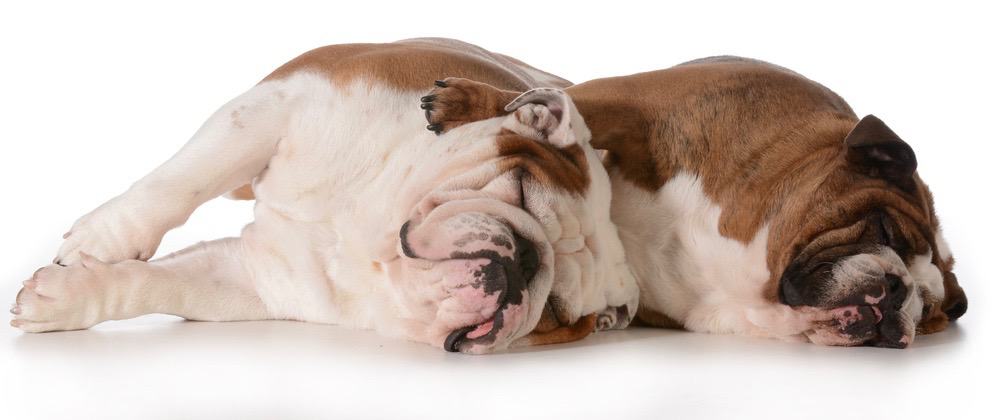
Do English Bulldogs Shed More Than French Bulldogs
The short answer is that English bulldogs tend to shed a bit more, although they are both low maintenance. The Frenchie is considered a hands-off dog when it comes to shedding.
With both the French and English Bulldogs, remember to get between the creases and folds of their wrinkles.
What Time Of The Year Do They Shed The Most
English Bulldogs usually shed most of their hair in the Autumn season, so that they can make room for new hair growth that is thick enough to give warmth to their bodies during the winter.
After the winter, they will also shed their hair again to get rid of their winter coats which would be too thick for hotter seasons.
How Bad Is English Bulldog Shedding To Deal With
In comparison to other dog breeds, English Bulldogs don’t shed all that much. It also helps that their fur is short and fine so that it doesn’t show up that much unless you are wearing dark clothing.
With proper grooming, you can mitigate the effects of the shedding because you can brush them and groom them in spaces where clean-up is easy or a designated space.
How To Brush Your English Bulldog At Home
It is a great practice to implement a brushing and grooming routine for your pets. Brushing can also help to distribute oils throughout their coats which keeps their fur shiny and healthy-looking.
The best place to brush your dog is outside so that the fur does not get all over your home. Use a soft enough brush and run it through the entirety of his coat every day.
You should also wipe his coat with a dry bath wipe which lifts away mud and dirt and prevents skin irritation. This is also a great bonding time over with your English bulldog.
How To Protect Your Furniture From Dog Hair
The best way to keep a dog’s hair away from your furniture is to teach him not to sit on said furniture. However many people don’t like doing this because they want to cuddle with their pets on the furniture and even on their beds.
You can get around this by placing a covering over your furniture and only removing it when you are expecting visitors. In this way, you will have clean furniture underneath the covering.
Final Words
If you notice that your Bulldog is shedding excessively you should first look at the possible reason for this shedding. You need to ask yourself if this is the seasonal shedding or actual fur loss.
The normal amount of shedding should not worry you, but sudden and excessive shedding should be monitored closely.
Also understand that because of genetics, your English Bulldog May shed a little more or a little less than other English bulldogs. Diet is also important since proper nutrition helps to give your English Bulldog a beautiful coat of fur.

